New Delhi5 minutes ago
- Copy link
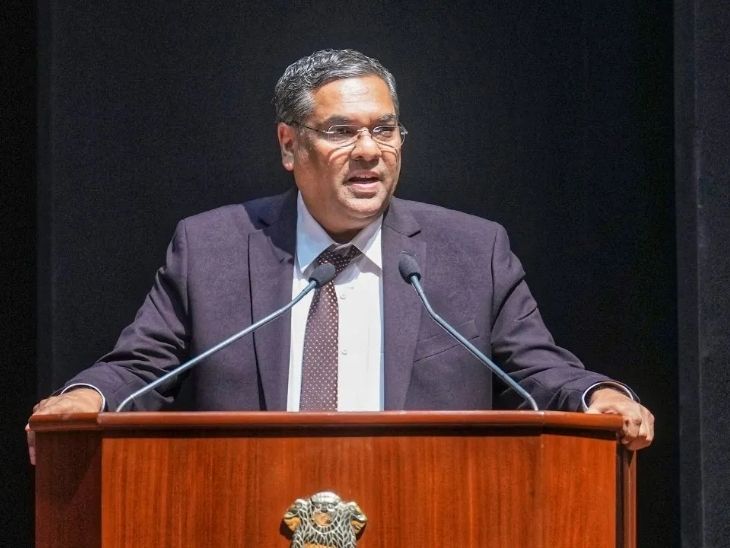
Former CJI of India Sanjeev Khanna has given important suggestions to the Joint Parliamentary Committee (JPC) reviewing the ‘One Nation One Election’ Bill. He said that the constitutional validity of a proposal does not show that its provisions are desirable or necessary.
Justice Khanna told the committee that the Constitution Amendment Bill can weaken the federal structure of the country. Most of the experts who shared views with the committee headed by BJP MP PP Chaudhary refused to consider the bill as unconstitutional, but questioned the provisions.
Justice Khanna also said that if the Election Commission gets the right to postpone the election, it would be indirectly like President’s rule. This would mean that the central government can take control of the states in its own hands.
He said that the Lok Sabha and Assembly elections were held simultaneously in 1951-52, 1957, 1962 and 1967, it was just a coincidence, not the order of the Constitution. Former CJI DY Chandrachud, Justice JS Khehar, Justice UU Lalit and former CJI Ranjan Gogoi have also given their opinion before the Parliamentary Committee before former CJI Khanna.
Experts had said- GDP can increase by 1.5% from One Nation One Election JPC met at Parliament House Annex on 30 July on One Nation One Election. In this, 15th Finance Commission Chairman NK Singh and Professor Dr. Prachi Mishra of Economy had expressed their opinion.
Both of them termed the elections to Lok Sabha and State Assembly together as financially beneficial. He said that this may increase by 1.5 percent in the country’s GDP (GDP) during elections.
In their shared presentation, both experts said that according to the figures of 2023-24, this increase in GDP will be Rs 4.5 lakh crore. However, the fiscal deficit (government’s expenses) can also increase by about 1.3 percent due to high expenditure after elections.
So far, 6 JPC meetings have been held, what happened in them, read …
First meeting- 8 January
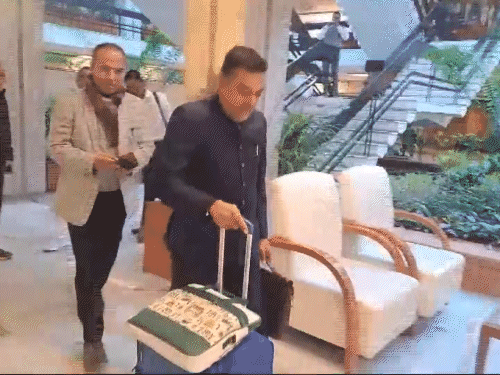
BJP MP Sambit Patra taking a report in the suitcase after the meeting.
The first meeting of JPC was held on 8 January. In this, all MPs were given a trolley with more than 18 thousand page reports. This includes the Kovind Committee report in Hindi and English and 21 copies of the attachment. It also includes soft copy. Read full news …
Second meeting- 31 January
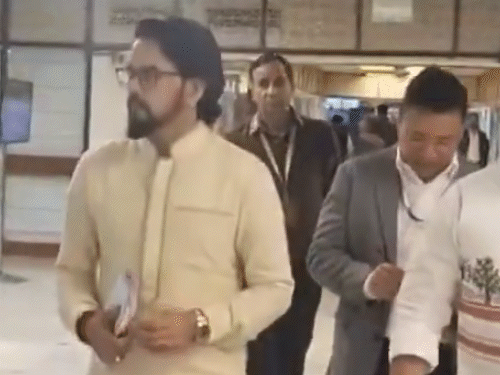
Priyanka Gandhi and Anurag Thakur reached the second JPC meeting.
The second meeting was held on 31 January 2025 on the 129th Constitution Amendment Bill. In this, the committee made a list of stake holders to take suggestions on the bill. This includes the Supreme Court and the former Chief Justice, Election Commission, political parties and state governments of the country. Read full news …
Third meeting- 25 February
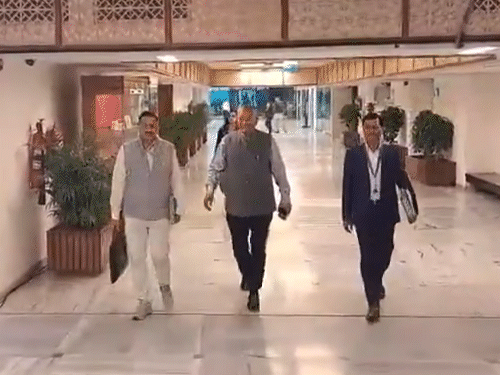
Congress MPs Priyanka Gandhi Vadra, Randeep Surjewala and other leaders had come to attend the JPC meeting.
The third meeting of the committee was held on 25 February. In this, former Chief Justice Uday Umesh Lalit, former Chairman of Law Commission, Rituraj Awasthi, gave suggestions in front of 4 Law Experts Committee. Read full news …
Fourth meeting- 26 March
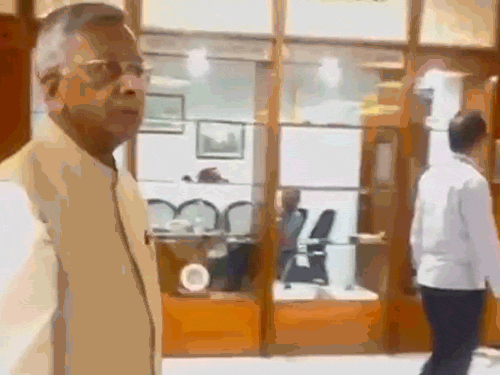
India’s Attorney General R Venkatarmani reached Parliament House for a JPC meeting on the ‘one election’ bill.
Attorney General R Venkatramani, former Chief Justice of Delhi High Court DN Patel, JPC member Priyanka Gandhi Vadra, including others, attended the fourth meeting of the Joint Parliamentary Committee (JPC).
Attorney General Venkataramani had told JPC- no amendment in the proposed laws is required. The Bills to hold elections simultaneously do not affect any feature of the Constitution. These are correct from the point of view of law. Read full news …
Fifth meeting- 11 July
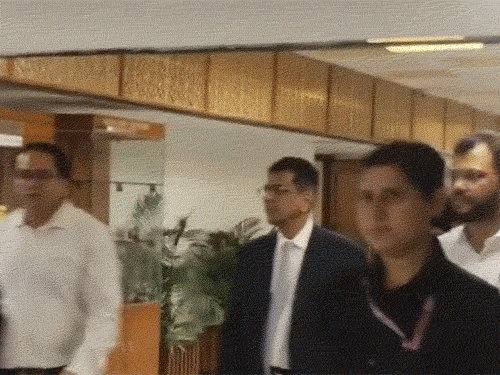
Justice JS Khehar and Justice Chandrachud attended the 5th meeting of JPC on 11 July.
Former CJI Justice DY Chandrachud supported the bill at the July 11 meeting. He had said that the bill implementing the proposal to hold Lok Sabha-Vidhan Sabha elections simultaneously does not affect the original structure of the Constitution. He said that there is a need to debate some provisions related to the powers of the Election Commission (EC) in the bill. Read full news …
Sixth meeting- 30 July
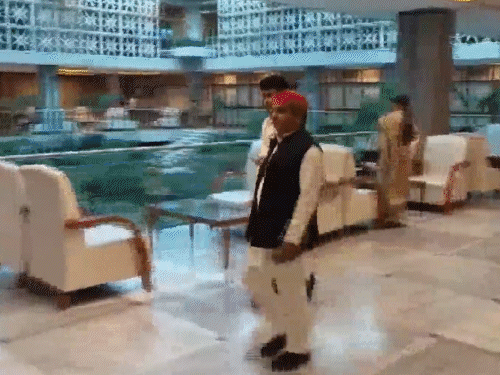
MPs reached the JPC meeting after attending the monsoon session of Parliament.
NK Singh, chairman of the 15th Finance Commission and Dr. Prachi Mishra, Professor of Economy, expressed their opinion in the meeting. He repeatedly stated the loss of election. He said that repeated elections have a bad effect on areas like manufacturing, construction tourism and healthcare. Overseas laborers often return home. This affects productivity. Read full news …
What is one country-one election… There are elections for Lok Sabha and state assemblies at different times in India. One country-one election means holding elections of Lok Sabha and state assemblies simultaneously. That is, voters will vote on the same day, at the same time to choose members of Lok Sabha and State Assembly.
The Lok Sabha and Assembly elections were held simultaneously in 1952, 1957, 1962 and 1967 after independence, but in 1968 and 1969 several assemblies were dissolved prematurely. The Lok Sabha was also dissolved in December 1970. Because of this, the tradition of one country-one election was broken.

4 big benefits of holding elections together-
Ramnath Kovind Committee has given these arguments in favor of holding elections together in its report …
1. Continuation will come in governance: Due to the ongoing cycles of elections in different parts of the country, political parties, their leaders and governments are focused on elections. By conducting elections simultaneously, the focus of governments will focus on developmental activities and implementation of public welfare policies.
2. Officers will be able to focus on work: Due to the reasons for the election, adequate number of personnel of several departments including police have to be deployed. With simultaneous elections, the need for repeated deployment will be reduced, so that government officials will be able to focus on their basic liability.
3. Policy will stop paralysis: Regular administrative activities and development works are disrupted by the implementation of the Model Code of Conduct during elections. Elections together will reduce the period of prolonged implementation of the model code of conduct, which will reduce the policy paralysis.
4. Financial burden will decrease: Elections together can reduce the expenditure significantly. Whenever elections are held, manpower, equipment and management of safety measures cost huge spent. Apart from this, political parties also have to spend a lot.
These figures support together elections
• 676 days of code of conduct remained in force in India during 2019-2024, ie about 113 days every year.
• According to an estimate in the 2024 Lok Sabha elections alone, about 1 lakh crore rupees were spent.
,
Read this news related to the case …
One country-one election is not a violation of the basic structure of the constitution, former CJI Chandrachud gave a written opinion to the Parliamentary Committee
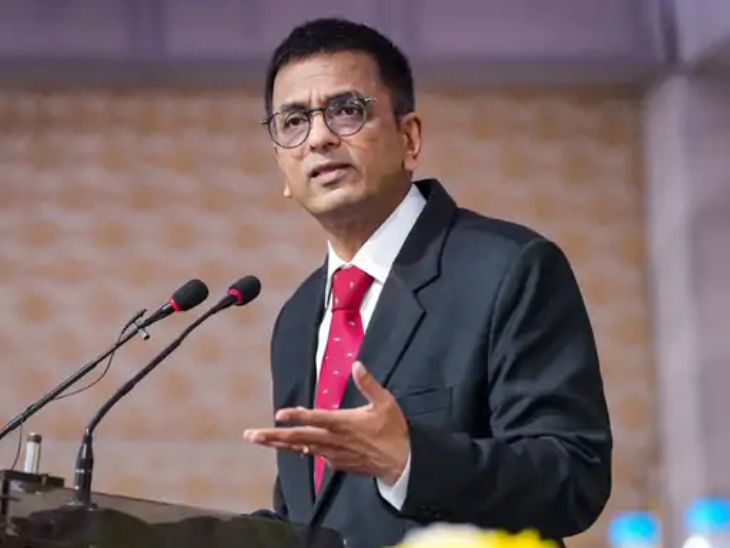
Former Chief Justice of India (CJI) DY Chandrachud said, “Elections of Lok Sabha and Assembly together are not a violation of the basic structure of the Constitution.” However, he has expressed concern over the powers given to the Election Commission (ECI) in the proposed bill. Read full news …



